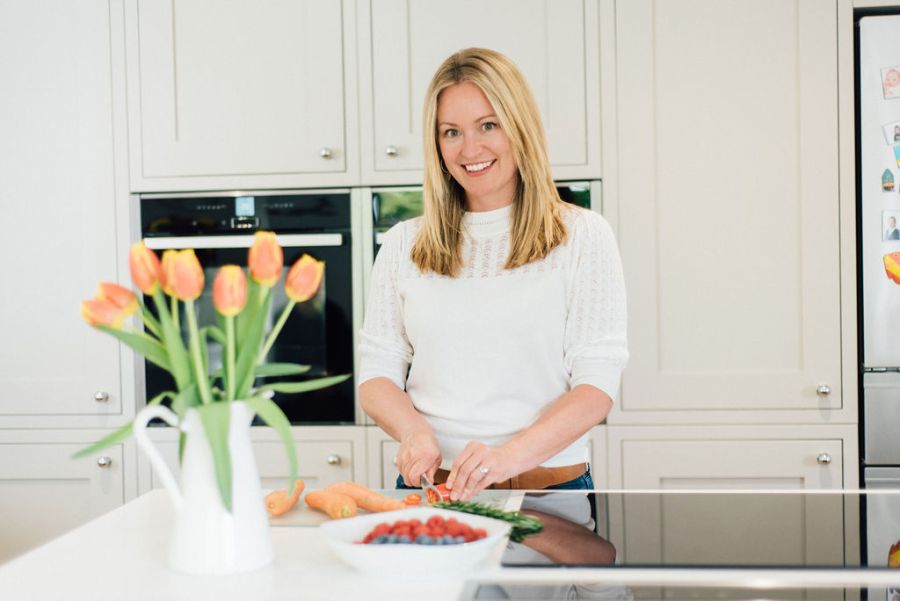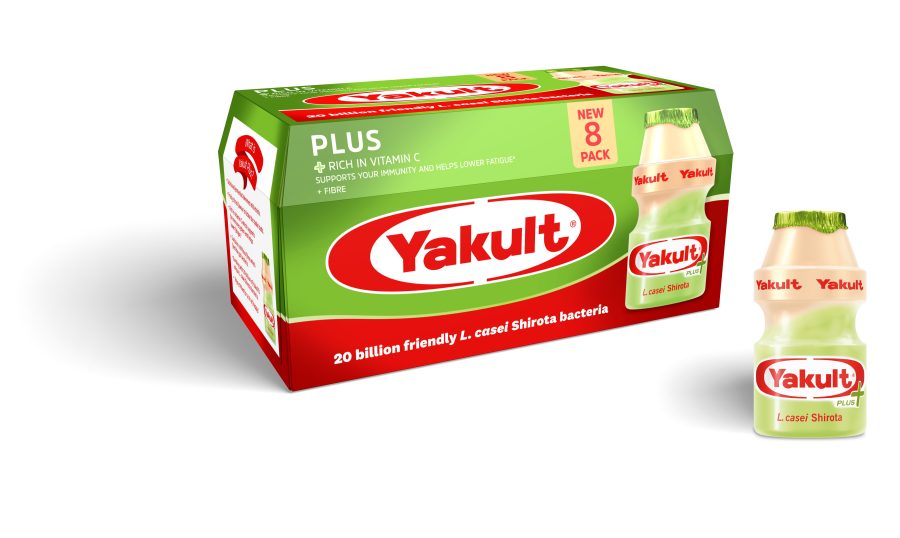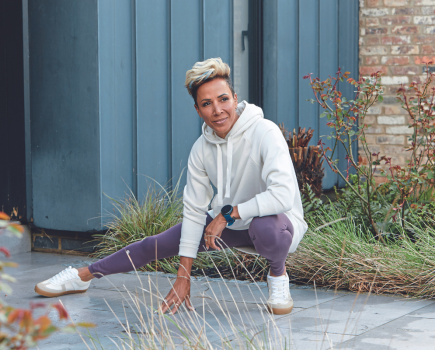Improve your wellbeing this summer with these simple nutrition and lifestyle tips from registered dietitian, Jennifer Low, in partnership with Yakult…

Yakult has partnered with Registered Dietitian, Jennifer Low, to advise on simple ways to improve wellbeing
Looking after our wellbeing doesn’t have to mean making huge shifts to our lifestyle. Rather than setting big commitments for ourselves that we struggle to keep, it is often the everyday little things that could make a powerful difference.
From the food we eat, to the activities we take part in, sometimes just the smallest of changes can have a positive impact on our physical, mental and gut health. Yakult has partnered with Registered Dietitian, Jennifer Low, to advise on simple, new habits we can introduce to our daily lives that could make a big difference to our overall wellbeing. From eating a wider variety of fruit and veg, to spending time outside and engaging with your senses when you get out for a walk…
1. Focus on your gut health
The gut microbiota consists of trillions of microbes (bacteria, fungi and viruses) in our gastrointestinal tract. The bacteria in our guts are hugely important and can impact our health and wellbeing, both physically and mentally.
The gut microbiota supports the defence against bad bacteria, so a balanced microbiota can prevent bad bacteria from overgrowing – making it an important part of our immune system and supporting our wellbeing via the unique link called the gut-brain axis.
The amount and type of fibre we consume can help to determine the diversity of our gut bacteria. Eating a greater diversity of foods as well as introducing fermented foods such as kimchi and kefir, is associated with better overall health.

The gut microbiota consists of trillions of microbes (bacteria, fungi and viruses), which can impact our health and wellbeing, both physically and mentally.
How to improve your gut health:
- Increase your fibre, the main fuel for your gut bacteria, by switching to wholegrain options for cereals, pasta, rice and bread
- Increase the variety of fruit and veg you eat and “eat the rainbow”. Aim for at least 5 portions of fruit and vegetables every day. If you only manage 1 or 2 right now, try to build it up steadily by, for instance, adding an extra portion each day
- Aim for 30 “plant foods” per week. Keep a record of the different fruits, vegetables, wholegrains, herbs, nuts and seeds you have in a week and try to increase each week
- Try adding fermented foods to your diet, such as kimchi and Yakult Plus as these give our gut exposure to live bacteria
2. Be more mindful
Mindfulness is a compassionate way of coming into awareness of our own thoughts, feelings, body sensations, emotions and the environment around us. It is non-judgmental and does not require us to make a change, merely observe.
By turning our attention to whatever is going on internally for us, we can slowly become an observer of our “self” and by extending that awareness to our environment we can start to see how we react to our environment and people around us. When we can observe, we can choose to respond with awareness, rather than react unconsciously.
Practicing mindfulness meditation has been associated with enhanced well-being in healthy individuals and overall mood.
We can practice mindfulness in our everyday life, by noticing:
- How water feels on our skin when we shower
- How we are feeling when our children come out of school
- Our breath moving in and out of our lungs
- How food tastes and feels in our mouths
There are a wide range of meditation apps and classes available, but being mindful in our daily life is an easy start.
3. Get active
We are all aware that we need to exercise. It seems to be that people either love exercise, or they hate it so finding a form of exercise that you enjoy is key to making it a priority in your life.
Some say they are too busy to exercise, or that they’re “not an exercise person”, but it may be that you need to shift your mindset. All the research on exercise shows us that we need to move our bodies in order to stay healthy, both physically and mentally.
According to the NHS, adults should aim to do a strength-based workout at least 2 days a week; do at least 150 minutes of moderate intensity or 75 mins of vigorous intensity activity per week; spread exercise over 4-5 days and reduce the amount of time we spent sitting down.
Exercise doesn’t have to mean training for a marathon. In fact, as with anything, starting small and building up gradually, means you are much more likely to stick to it.
How to increase your daily exercise:
- Start walking more – be that a short stroll at lunchtime, having a walk with a friend or taking the stairs not the lift
- Joining an exercise or yoga class – online or in person!
- Gardening or just visiting your local park
- Begin by introducing gentle exercise like stretches or swimming
4. Prioritise sleep
In a society that talks frequently about being busy and stressed, we spend a lot of our time fighting our body’s natural circadian rhythms, which is the 24 hour “clock”, that we’re designed to work on.
Instead of listening to our internal natural cues to sleep, we use electric lighting, screens, caffeine and alcohol to keep us awake outside of the times we would naturally sleep.
The National Sleep Foundation recommends that adults have 7-9 hours of sleep per night. However, many adults report insomnia symptoms, such as difficulty falling asleep, waking up in the night and feeling tired during the day.
How to sleep better tonight:
- Stay off screens for at least 2 hours before going to sleep
- Keep your lighting dim in the evenings
- Expose yourself to 5 minutes of natural sunlight within 60 minutes of waking up – this has been shown to help you feel more awake throughout the day and improved ability to fall and stay asleep at night time
- Switch to decaffeinated drinks after mid day
- Avoid alcohol as much as possible

Studies indicate that if we have high levels of nature-connectedness we are happier in life and have lower levels of depression and anxiety, feel more vitality, positive feelings and increased satisfaction with life.
5. Re-connect with nature
This is a relatively new area of research. It describes the way we experience nature, as opposed to just being in nature.
We can walk through the park and not notice a thing, or we can walk through the park and connect with how the birds sound, or how the trees are outlined against the sky, how the ground feels under our feet. This is nature connection.
Studies indicate that if we have high levels of nature-connectedness we are happier in life and have lower levels of depression and anxiety, feel more vitality, positive feelings and increased satisfaction with life.
Two hours a week has been found to be a dosage that significantly boosts health and wellbeing.
How to connect with nature:
- Noticing and actively engaging through your senses as you walk – smell the flowers, touch the tree bark, listen to the birds sing
- Garden – even just growing and tending to herbs on your kitchen windowsill counts
- Watch nature programmes on TV – if you really have no time to get outside, research has even found that watching nature programmes on TV can increase feelings of wellbeing.
Make Yakult part of your wellbeing routine
 Yakult is making it easier than ever for us to look after our wellbeing, with the launch of Yakult Plus. This new addition to the Yakult range of fermented skimmed milk drinks is rich in Vitamin C, which supports the immune system and helps lower fatigue. With a fruity citrus flavour, each bottle is bursting with 20 billion friendly bacteria, scientifically proven to reach the gut alive. Plus, it contains fibre that can feed the bacteria in the gut. A delicious simple way to support a healthy lifestyle as part of your wellbeing routine.
Yakult is making it easier than ever for us to look after our wellbeing, with the launch of Yakult Plus. This new addition to the Yakult range of fermented skimmed milk drinks is rich in Vitamin C, which supports the immune system and helps lower fatigue. With a fruity citrus flavour, each bottle is bursting with 20 billion friendly bacteria, scientifically proven to reach the gut alive. Plus, it contains fibre that can feed the bacteria in the gut. A delicious simple way to support a healthy lifestyle as part of your wellbeing routine.
What’s more, Yakult Plus contains just 30 calories per bottle and is a fat-free and gluten-free option that’s suitable for vegetarians, like the rest of the Yakult range.
Yakult Plus is now available in supermarkets. For further information, visit yakult.info/top-sante-yakult-plus








